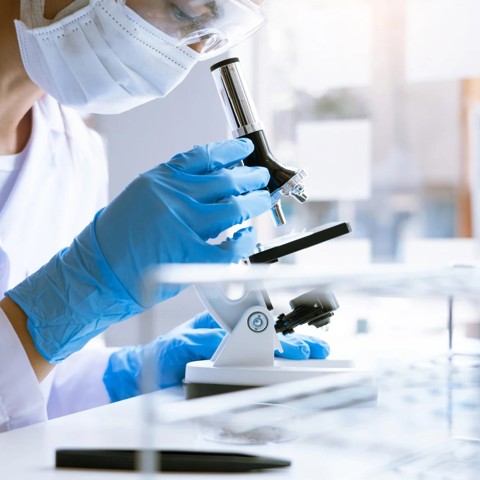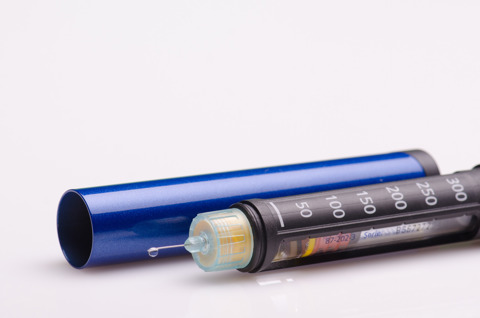
Development of insulin treatments could be accelerated thanks to research grant
Global research programme boosted by £2.7 million funding.
Six new research projects will receive funding to the value of more than £2.7 million to accelerate the development of insulins that more closely mimic how a healthy pancreas works.
The international research projects will have a focus on developing next-generation insulins, also known as novel insulins.
Researchers hope the research will provide new treatment options that improve the lives of people living with type 1 diabetes and reduce the risk of long-term complications.
The research will be conducted at universities in the United States, Australia, and China, with the aim to design insulins that act faster and more precisely.
People with type 1 diabetes cannot produce their own insulin, so they take insulin several times daily to survive. However, insulin does not represent a “cure” for type 1 diabetes, and new forms of insulin are urgently needed.
Blood glucose levels are affected by many factors including food intake, exercise, stress, other hormones, and additional contributing factors, such as the weather.
Even with the most advanced technology available, many people with type 1 diabetes fluctuate between high and low glucose levels, resulting in short and long-term physical health issues.
The constant struggle to stabilise blood glucose with existing insulins can also be a significant mental burden for people living with type 1 diabetes.
The Type 1 Diabetes Grand Challenge is funding six new research projects to develop novel insulins to address the limitations of current insulin formulations.
Four of the research projects involve scientists creating and testing novel insulin formulations that can respond to changing blood glucose levels, known as glucose responsive insulins (GRIs). The concept of glucose responsive insulins is that the drug only becomes active when there is a certain amount of glucose in the blood to prevent hyperglycaemia (high blood glucose) and becomes inactive again when levels drop below a certain point, avoiding hypoglycaemia (low blood glucose).
Researchers running a fifth research project are developing a new ultrafast, short-acting insulin.
The final research project is focused on designing a protein that combines insulin with another hormone, glucagon. Unlike insulin, which helps remove glucose from the blood, glucagon stimulates the liver to release more glucose when levels in the blood run low.

Dr Tim Heise, Vice Chair of the Novel Insulins Scientific Advisory Panel for the Type 1 Diabetes Grand Challenge, said: “Even with the currently available modern insulins, people living with type 1 diabetes have to put lots of effort into managing their diabetes every day to find a good balance between acceptable glycaemic control on the one hand and avoiding hypoglycaemia on the other. The funded six new research projects address major shortcomings in insulin therapy.
Glucose-responsive (so-called ‘smart’) insulins are regarded as the holy grail of insulin as they would come as close to a cure for type 1 diabetes as any drug therapy could. A truly rapid short-acting insulin might make it finally possible to progress from hybrid to fully closed loop systems, allowing a technological ‘cure’ for insulin-treated people with diabetes. Potentially minimising the risk of hypoglycaemia through an insulin-glucagon combination would ease one of the major concerns associated with insulin therapy today. Therefore, these research projects, if successful might do no less than heralding a new era in insulin therapy.”
Professor Simon Heller, Chair of the Scientific Advisory Panel, said: “This unique funding is transforming the ability of global scientists to join forces to tackle type 1 diabetes. It enables researchers to set up new collaborations and to test innovative ideas which may lead to a step change in finding a cure for type 1 diabetes.”
In April last year, three researchers that have worked with DRWF were supported by a £5 million funding award towards diabetes research.
The funding marked the start of the Type 1 Diabetes Grand Challenge programme – set to provide £50 million towards diabetes research over the coming years.
The funding of scientists based around the UK will each solve different problems with the ultimate goal of finding a cure for type 1 diabetes.
The trio of researchers awarded part of the funding were Dr James Cantley, Dr Victoria Salem and Professor Sarah Richardson.
Read more here
Read more about type 1 diabetes
I would like to make a regular donation of
I would like to make a single donation of
There are lots of ways to raise money to support
people living with all forms of diabetes.
Bake, Swim, Cycle, Fly ... Do It For DRWF!
Fundraise with us
Recent News


